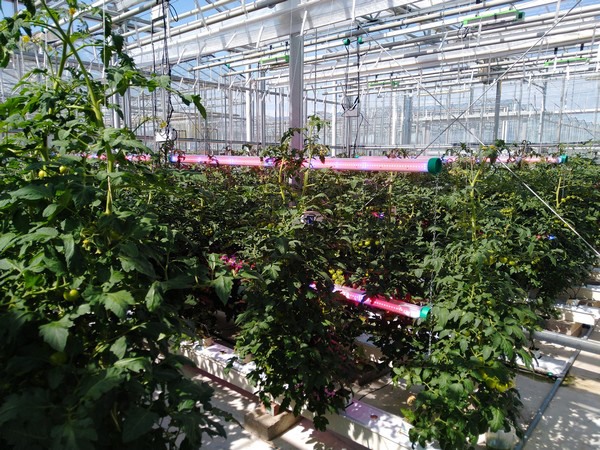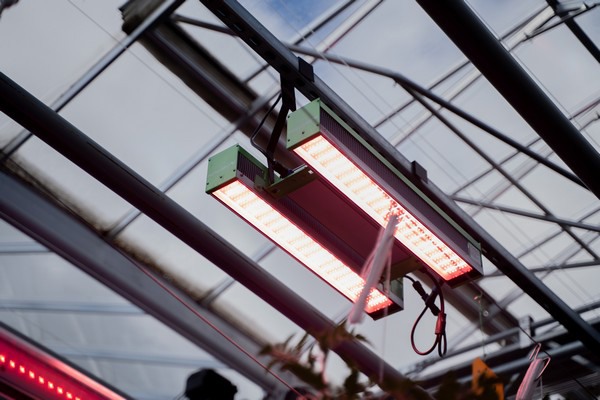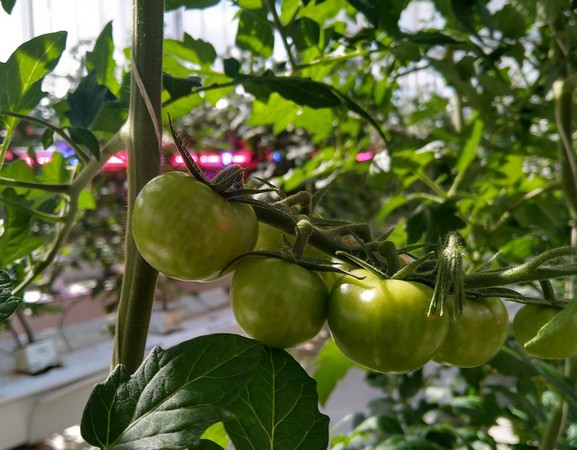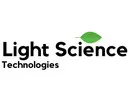AgTech specialist Light Science Technologies (LST) has successfully completed its tomato trial with Crop Health and Protection (CHAP) to investigate lower energy technology solutions for vine crops.
Using LST’s nurturGROW interlight and nurturGROW high power top light, the five-month project trialed three different light combinations to see which produced the most yield for the least energy, while finding the optimum balance between energy and yield. The first regime consisted of interlighting only, the second regime top lighting and interlighting, and the third was top lighting only.

The results showed that supplementary light increases crop yield by up to 12.1% even when used in summer months and that top lighting only is the most energy-efficient lighting regime with 38.2% more fruit per kWh. The trial also revealed that interlighting only was the top-performing light regime.
During the trial period, 7,880 tomatoes were grown, collectively weighing 615.31kg and with 7449.15kWh total energy used.
Assessments carried out during the trial included plant size and height on a weekly basis after transplanting; daily light usage (in hours); weekly energy usage for each regime and plant/foliage color on a weekly basis. Harvest records were also logged, based on harvesting fruit when ripe at a maximum of twice per week.
As input costs soar due to rising fuel and energy costs, there is a consensus that growing more local produce and using less energy can be achieved through more productive light positioning. The UK imports 400,000 tonnes of tomatoes and spends £921m on fruit annually.

The project was carried out in conjunction with CHAP at the Stockbridge Technology Centre (STC), at their Advanced Glasshouse facility in Selby, North Yorkshire.
The facility enables new plant protection products and integrated crop protection programs to be robustly assessed in the field, glasshouse, and hydroponic systems. This provides benefits to food producers by offering more reliable trial conditions for their products, especially for biopesticides, with consequent benefits to the crop production sector in the form of increased product availability.
Andy Williams, Marketing Director at LST said: “The collaboration with CHAP is part of our overall strategy to work with leading agronomists and experienced growers to determine two key factors: whether the UK can increase its food security by growing more locally and do so in an energy-efficient manner, at a time when energy costs are rising to record levels.”

“The trial has shown the tangible gains and benefits of using an energy-efficient grow light on vine crops, with further energy saved as the luminaire turns off when not needed. nurturGROW also reduces light wastage with its recyclable and reusable design, making it more sustainable. This all adds up to a win-win for growers and consumers, as the UK experiences ongoing food shortages and crippling costs. Some of this can be kerbed by reducing transportation costs associated with imported produce, as well as lowering carbon footprint, which once again highlights the urgent need to address a broken food system through a more sustainable method of farming to ensure our food security.”
CHAP’s Technical Liaison Officer, Lucy Plowman, said: “CHAP was pleased to facilitate this work at our advanced glasshouse facility alongside partner STC, to contribute towards valuable research that will optimize tomato production.
“Lighting has a huge impact on the success of glasshouse-grown crops, particularly in a grower’s ability to extend the production season for vine crops such as tomatoes. But, recent price hikes in energy costs mean it is critical to ensure it is efficient as well as effective.
“The research undertaken by LST will help growers to strike this balance, as well as address environmental concerns associated with both energy waste and produce imports.”

For more information:
Light Science Technologies
www.lightsciencetech.com
 CHAP
CHAP
[email protected]
www.chap-solutions.co.uk
